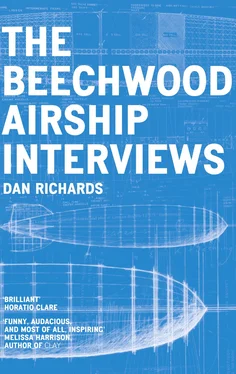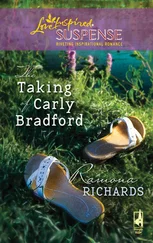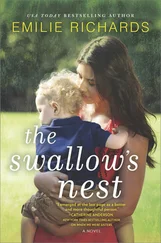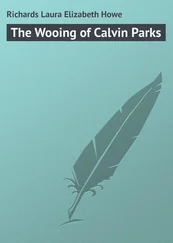• • • • •
You often relate your ideas and journeys in a very characteristic first-person style when you write – often in retrospect, often in the form of a diary or log.
‘Yes, although some of the time I cheat. Sometimes I write in the present tense although it’s been written after the event and I’m aware, in the sense that all writing is lying, that I’m telling a story so I’m leaving out a percentage of things in order to tie a thing together so that it has a beginning, a middle and an end, and I will do that unconsciously. I don’t set out to do it but somehow I’ve learnt to do that. Sometimes I look back and think, “I’ve just learnt these tricks,” and sometimes I try to break free of that − I can see my own clichés.
I’d like to think I could write a proper book with one whole story, like a novelist does but I guess, for a successful novel and definitely a successful film, you have to have something that happens in the first ten minutes or the first X amount of pages in a novel that sets something up: Something has now happened that changes everything – you’ve got to get to the end for it to resolve itself, that’s what takes you through. That doesn’t really happen with my things.
You mentioned earlier that your writing is episodic, Dan. That’s what my stuff is and that’s what will stop it from ever crossing over commercially, I think. That’s the reason people can maybe get so far with one of my books and then go, “Okay, I get the picture,” you know? There’s no plot, it’s not going to go anywhere particularly.
‘When I was eighteen I read On the Road by Jack Kerouac − huge influence on me; that and Henry Miller is what got me wanting to write.
When they brought out the scroll of On the Road a couple of years ago I reread that and it was weird. I’m now, you know, quite a bit older than Jack Kerouac was when he died − he was young when he wrote it − and it’s only now that I realise “but there’s no story here, there’s nothing!” He could have cut that book off at any point, it has no conclusion.’
Has that influenced the way you see your role as a raconteur?
‘It was never a conscious thing; it wasn’t until me and Z, Mark Manning and I, went to New York to do Bad Wisdom *and we became like a double act, reading and telling the story, that I started learning how to actually talk to an audience. I knew I didn’t want to do it with a microphone. I knew I wanted to keep it as intimate as possible but I was aware that a craft was being learnt − it was an act to a certain extent but I knew that it also had to be for real. I know that, every time I go out and tell a story, like with The17 this afternoon, which I’ve told who knows how many times, I’ve got to somehow reach down into myself and make it real, in the same way as an actor has. Now, the last thing I ever wanted to be was an actor, but I know that’s what I’ve got to do and that has now become a big part, to use a cliché, of my practice as an artist; to get out there and tell stories and make it work, draw people in.
‘There’s another thing to this too. My dad was a minister in the Church of Scotland and in 1963 we did an exchange. He took over a church in a small town in North Carolina and the minister from that church worked at my dad’s church in Scotland. We went and lived in their house for three months and they came and lived in ours. Then, in 1993, we went back. It was just for a week or so but my dad was asked to give the sermon in the church there. Now, I grew up seeing my dad give sermons every week, as a kid, and I didn’t think about it, you know? “He’s just my dad.” When I was very young I’d be off into Sunday School by the time he got to the sermon … anyway, my dad was asked by the regular minister to come up and give the sermon, “We have Reverend Jack Drummond here …” and he got up out of the pew and started walking backwards down the aisle and started talking straight away. He got to the front and started going into it and I thought, “My dad’s got an act!” It had never crossed my mind (snaps fingers) and he was really good at it! He had them in the palm of his hand and the guy afterwards, the minister, said, “God, if I could roll my Rs like you, I’d be able to charge X amount more as a visiting preacher!” (Laughs) Which in this country, especially in Scotland, would never be said but that’s how Americans think, and I really learnt something from that. It’s not that I’m trying to imitate my father at all …’
But it’s in you.
‘It’s in me. And I realised I must have taken that in from a very early age − to get up and stand in front of an audience, no amplification, no band. You know, you’re not hiding behind the loud sounds of your guitar or the drums, or everything else, it’s not even that you’re hiding behind a tune. It’s just you and those people there and you’ve got to communicate something and leave something behind.’
You don’t think of yourself as a writer, though?
‘No. I’ve written books but I’m not a writer. I’ve made records but I’m not a musician. I can pick up a guitar or sit down at a keyboard and play some things but I don’t think of myself as a musician, never have done. I don’t think of myself as a writer, don’t think of myself as a painter … I went to art school by accident and I fell in love with painting. I was pretty good at painting too. That’s what I thought I was going to do and then, while I was there, I rebelled against the whole thing. Maybe I realised I wasn’t the genius I hoped I would be but I also thought, and this is going to sound arrogant, “I don’t want to spend the rest of my life attempting to make things to sell to rich people.” You know, one-off things.
I was then beginning to read, as I said, Kerouac and Miller. I liked the idea that with writing you could buy the paperback, everybody could buy the paperback and it was the same everywhere; and the same with music − a seven-inch single. I wasn’t thinking of getting into pop music at that point but I thought − the example I gave myself at the time and remember writing about is that Andy Warhol’s seven-inch of “Penny Lane” by The Beatles is no better or worse than my version. I liked that democracy.
‘So, I walked out of art school, walked away from painting and thought, “Well, I’ll write. To do that, I’ll have to go and live life and do all sorts of jobs, go all over the place.” It’s not like I just wanted to sit down and write novels about relationships and all that kind of stuff. I wanted to get out there into the world and live a life but I realised after a while that I wasn’t really a writer. I don’t know at what point it dawned on me but I was actually doing everything with the head of somebody who’d gone through the British art school system circa early 1970s and that’s still the overriding thing. So the storytelling, doing the posters, coming up with a way of allowing myself to do the paintings all comes from that.’
You say ‘allowing myself to do the paintings’ and you do often seem to structure work around a dogma or set of rules − allowance and denial.
‘It’s not like I’m “into denial” like some sexual or perverse thing … It’s like when I was making three and a half minute pop records; there’s no point making them longer than three and a half minutes. The way that these things are communicated to people is via radio, initially, and radio stations don’t want to play anything longer than three and a half minutes. If it is, they start fading it or talking over it. Also, with a pop record, any record, any recorded music, you can only have it within so many megahertz − you can’t have really high sounds or really low sounds because it can’t exist on a piece of vinyl or an mp3.’
Читать дальше












